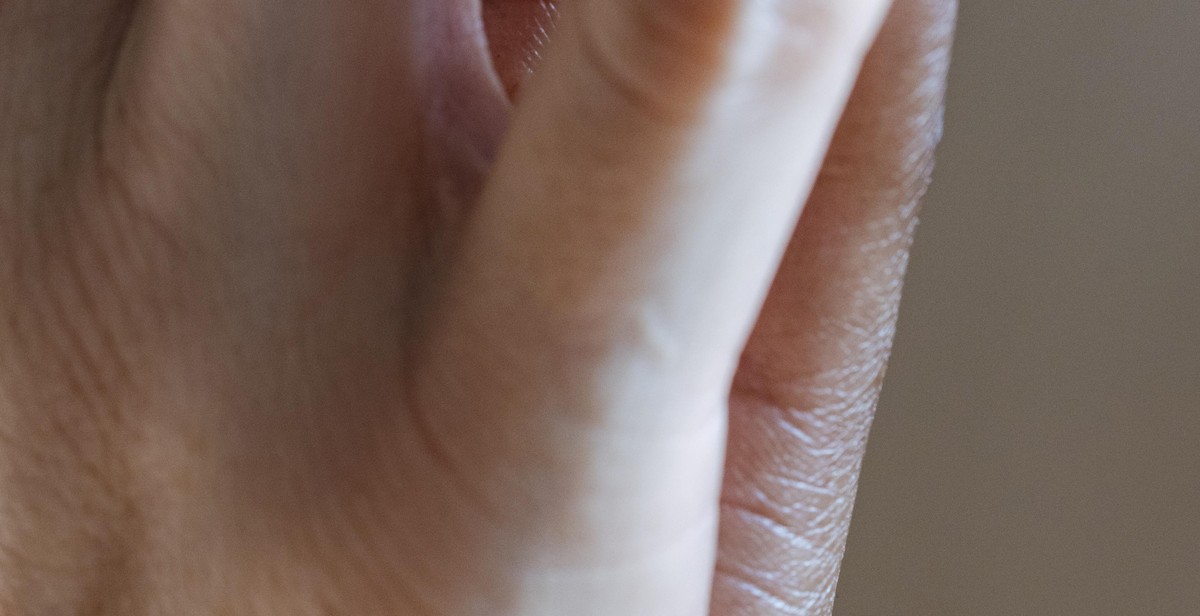The Power of Love: A Love Guru’s Perspective
As a professional article writer and content creator, I have written about many topics throughout my career. But the one that always tugs at my heartstrings and ignites my passion is love and relationships. For years, I have been studying and analyzing the psychology behind love and relationships, and I have come to realize that love is a powerful force that can change everything.
Love is not just an emotion; it’s a state of being. When you are in love, you see the world in a different light. You see beauty where others see flaws, and you see hope where others see despair. Love has the power to heal wounds, mend broken hearts, and bring people together. It’s a force that can move mountains and conquer all obstacles.
Over the years, I have helped countless individuals navigate the ups and downs of love and relationships. Through my work, I have witnessed the transformative power of love firsthand. I have seen couples overcome seemingly insurmountable challenges and come out stronger on the other side. I have seen individuals find love when they thought it was impossible. And I have seen the incredible impact that love can have on our lives.
In this article, I want to share my insights and experiences as a love guru. I want to delve deeper into the power of love and explore how it can transform our lives in ways we never thought possible.

What is Love?
As a love and relationships psychology guru, I have been asked this question countless times. It’s a complex and multifaceted concept that has been studied and explored by philosophers, poets, scientists, and everyday people for centuries. At its core, love is an intense and deep emotional connection between two individuals that involves feelings of warmth, affection, and attachment.
Defining Love
Love is difficult to define because it can take many different forms and manifest in various ways. It can be romantic, platonic, familial, or even self-love. However, most psychologists agree that love involves three key components: intimacy, passion, and commitment.
- Intimacy: This refers to the emotional closeness and connectedness between two people. It involves sharing personal thoughts, feelings, and experiences with one another.
- Passion: This component of love includes the physical and sexual attraction between two people. It is characterized by feelings of desire, excitement, and arousal.
- Commitment: The final component of love is commitment, which refers to the decision to maintain the relationship over time. This involves making sacrifices, compromising, and working through challenges together.
Types of Love
There are many different types of love that people can experience throughout their lives. Some of the most common types of love include:
| Type of Love | Description |
|---|---|
| Romantic Love | This is the type of love that most people think of when they hear the word “love.” It involves intense feelings of passion, intimacy, and commitment between two people who are romantically involved. |
| Platonic Love | This type of love refers to deep and meaningful connections between friends or family members. It involves feelings of warmth, affection, and caring. |
| Familial Love | This is the love that exists between family members, such as between parents and children or between siblings. It is characterized by feelings of loyalty, protection, and support. |
| Self-Love | This type of love involves accepting and caring for oneself. It is characterized by feelings of self-confidence, self-worth, and self-respect. |
Overall, love is a complex and powerful emotion that can have a profound impact on our lives. By understanding the different types of love and the components that make up this emotion, we can develop stronger and more fulfilling relationships with the people we care about most.

The Science of Love
As a love and relationships psychology guru, I have always been fascinated by the science of love. What happens in the brain when we fall in love? How do hormones play a role in our feelings of love and attachment?
What Happens in the Brain When We Fall in Love?
When we fall in love, our brains release a cocktail of chemicals including dopamine, oxytocin, and serotonin. Dopamine is associated with pleasure and reward, and is released in response to the anticipation of a pleasurable experience, such as spending time with a loved one. Oxytocin, also known as the “cuddle hormone,” is released during physical touch and is associated with feelings of bonding and attachment. Serotonin is a neurotransmitter that regulates mood and social behavior, and is thought to play a role in our feelings of happiness and well-being when we are in love.
These chemicals work together to create a powerful emotional experience that is often described as a “high” or a “rush.” This is why falling in love can feel so exhilarating and all-consuming.
The Role of Hormones
Hormones also play a role in our feelings of love and attachment. In particular, cortisol and testosterone have been shown to influence our romantic relationships.
Cortisol, also known as the “stress hormone,” is released in response to stress and anxiety. When we are in a new relationship, we often experience a lot of uncertainty and anxiety, which can lead to increased levels of cortisol. Over time, as the relationship becomes more stable and secure, cortisol levels tend to decrease.
Testosterone, on the other hand, is associated with sexual desire and aggression. Men tend to have higher levels of testosterone than women, which may explain why they are more likely to initiate sexual activity in relationships. However, it’s important to note that testosterone levels can vary widely between individuals, and are not necessarily an indicator of sexual desire or behavior.
| Hormone | Function |
|---|---|
| Dopamine | Pleasure and reward |
| Oxytocin | Bonding and attachment |
| Serotonin | Mood and social behavior |
| Cortisol | Stress and anxiety |
| Testosterone | Sexual desire and aggression |
Understanding the science of love can help us to better navigate our romantic relationships. By recognizing the role of hormones and chemicals in our feelings of love and attachment, we can gain a deeper understanding of our own emotions and behaviors, and create more fulfilling and satisfying relationships.

The Benefits of Love
As a love and relationships psychology guru, I have seen firsthand the transformative power of love on individuals. Love has a profound impact on both our physical and mental health, and the benefits are truly remarkable.
Physical Health Benefits
- Lower Blood Pressure: Studies have shown that people in loving relationships have lower blood pressure than those who are single or in unhappy relationships. This can reduce the risk of heart disease and stroke.
- Stronger Immune System: Being in love stimulates the production of hormones that boost the immune system, making us less susceptible to illness and disease.
- Faster Healing: Love can also speed up the healing process. A study found that married couples healed faster from wounds than single individuals.
- Pain Relief: Being in love can also reduce pain. Studies have shown that holding hands with a loved one can reduce the perception of pain.
Mental Health Benefits
- Reduced Stress: Love has been shown to reduce stress levels. Being in a loving relationship can provide emotional support and a sense of security, which can help us cope with stressful situations.
- Better Mood: Love releases hormones such as dopamine, oxytocin, and serotonin, which can improve our mood and make us feel happier.
- Improved Mental Health: Being in love can also improve our overall mental health. Studies have found that people in loving relationships have lower rates of depression and anxiety.
- Increased Self-Esteem: Love can also boost our self-esteem and confidence. Knowing that someone loves and accepts us for who we are can make us feel more positive about ourselves.
Overall, the benefits of love are numerous and significant. Whether it’s a romantic relationship or a strong bond with family and friends, love has the power to improve our physical and mental well-being. As a love guru, I encourage everyone to embrace love and its transformative power.

The Challenges of Love
Love is a powerful emotion that can bring immense joy and fulfillment to our lives. However, it is not always easy to navigate the challenges that come with being in a romantic relationship. As a love and relationships psychology guru, I have seen firsthand the struggles that couples face when trying to maintain a healthy and happy partnership. Here are some of the most common challenges of love:
Communication
Effective communication is the cornerstone of any successful relationship. However, many couples struggle to communicate openly and honestly with each other. This can lead to misunderstandings, hurt feelings, and ultimately, the breakdown of the relationship. It’s important to make a conscious effort to communicate clearly and listen actively to your partner’s needs and concerns.
Trust
Trust is essential in any relationship, but it can be difficult to establish and maintain. Past experiences or insecurities can make it hard for some people to trust their partner, even when there is no reason to doubt them. Building trust takes time and effort, but it is crucial for a healthy and lasting relationship.
Jealousy
Jealousy is a common emotion in relationships, but it can quickly become toxic if left unchecked. It’s natural to feel jealous from time to time, but it’s important to recognize when it becomes excessive or irrational. Communicating openly with your partner about your feelings can help alleviate jealousy and build trust.
Compromise
Compromise is an essential part of any relationship. However, it can be challenging to find a balance between your needs and your partner’s needs. It’s important to approach compromise with an open mind and a willingness to find a solution that works for both of you.
| Challenge | Key Takeaway |
|---|---|
| Communication | Make a conscious effort to communicate clearly and listen actively to your partner’s needs and concerns. |
| Trust | Building trust takes time and effort, but it is crucial for a healthy and lasting relationship. |
| Jealousy | Communicating openly with your partner about your feelings can help alleviate jealousy and build trust. |
| Compromise | Approach compromise with an open mind and a willingness to find a solution that works for both of you. |

How to Cultivate Love
Loving oneself is the first step in cultivating love in any relationship. Self-love is the foundation of a healthy relationship, and it is impossible to love someone else if you do not love yourself first. Start by practicing self-care, which includes eating healthily, exercising, and taking time to do things that make you happy.
Nurturing Relationships
One of the keys to nurturing a healthy relationship is communication. Communication is the foundation of any relationship, and it is important to be open and honest with your partner. Make time for your partner, listen to them, and show them that you care. Small gestures, such as a surprise date or a thoughtful note, can go a long way in nurturing a relationship.
Another important aspect of nurturing a relationship is showing appreciation. Let your partner know that you appreciate them and the things they do for you. This can be as simple as saying “thank you” or giving them a compliment.
The Importance of Forgiveness
Forgiveness is essential in any relationship. Holding onto grudges or resentment can create distance between partners and hinder the growth of the relationship. It is important to acknowledge your feelings and communicate them to your partner in a calm and respectful manner. However, it is also important to let go of the past and move forward together.
Remember that cultivating love takes time and effort. It requires patience, understanding, and a willingness to work through challenges together. By practicing self-love, nurturing relationships, and embracing forgiveness, you can cultivate love in any relationship.
